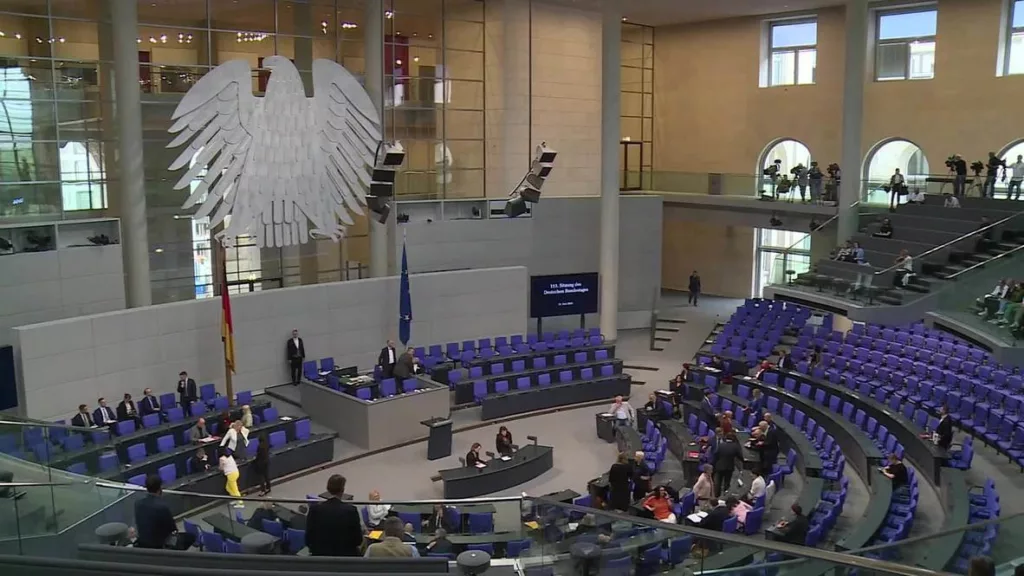On Friday (June 23), the German government approved a new change to the immigration law. This change is meant to make it easier for people from countries outside of the European Union to come to Germany for work.
Nancy Faeser, the Interior Minister, who belongs to the Social Democrats, said that this new law will help Germany prosper. But she also mentioned that it will only be successful if they can remove the difficult paperwork and processes during its roll-out.

“It’s unacceptable that you have to fill in 17 different applications to bring a new care worker into the country,”.
The largest opposing party, the conservative Christian Democratic Union (CDU) and Christian Social Union (CSU) alliance, agrees with some parts of the government’s plan, but they don’t like the idea of making it easier for foreign workers to qualify. Andrea Lindholz of the CSU believes that if it becomes less necessary for workers to speak good German, it might attract more low-skilled workers.
Lindholz also pointed out that the new law wouldn’t fix what she thinks is the main problem: the slow process at foreign consulates due to too much red tape.
She further mentioned that allowing refugees who are already in Germany to find jobs could risk turning the refugee process into a way for people to get government help to look for jobs in Germany.
Norbert Kleinwächter, from the far-right Alternative for Germany (AfD) party, strongly criticized the new law. He suggested that the government’s plan would turn Germany into a “junk country”. He also said that the main idea of the law, which is quite long, could be simply put as: “Everyone gets in, but no one gets kicked out.”
However, Lamya Kaddor of the Green Party disagreed with the AfD’s views. She stated that knowing German is not the most important requirement for working in Germany. She sarcastically asked those from the right-wing parties if they’d ever noticed that people tend to learn German best when they have to use it at work. She expressed that this law is great news for Germany and said that with this step, Germany is catching up with other countries like the US or Canada, which are successful in managing immigration.
The Free Democratic Party (FDP), which is part of the German government’s three-party team, emphasized the economic gains they think the new law will bring. “Right now, it’s easier in Germany to move into the asylum system than to get a job,” said Konstantin Kuhle from FDP. “This law is going to change that.”
New ‘Opportunity Card’
A big change in the law is a new “opportunity card” and its related points system. This will allow people from other countries, who don’t have a job waiting for them, to come to Germany for a year to look for work.
To get this card, you need to have a skill from a vocational school or a university degree.
The card will be given to those who meet certain requirements, which will earn them points. These could be skills in German and/or English, having connections to Germany already, and the potential of their partner or spouse to work in Germany.
The opportunity card will also let people work in temporary jobs for up to 20 hours a week while they search for a full-time job. They can also work on a trial basis.
Helping Refugees Fit In
People who are waiting for their asylum application to be approved, and who submitted their application by March 29, 2023, have the right skills, and a job offer, will also be allowed to join the job market. This will let them start learning a trade.
The same rule applies for those who are in Germany on a tourist visa. They won’t have to leave the country first before coming back to work.
Recognizing Degrees
In the past, one big hurdle for immigration has been getting degrees recognized in Germany.
Now, skilled immigrants won’t need to get their degrees recognized in Germany if they can show they have at least two years of work experience and a degree that’s accepted in their home country. If someone already has a job offer, they can come to Germany and start working while their degree is being recognized.
Changes to the Citizenship Law
During the parliamentary debate, Martin Rosemann from Chancellor Olaf Scholz’s SPD party shared his view: “Highly skilled young people from all over the world are not exactly lining up to work in Germany,” he said. “We have to attract them and provide them with a long-term plan. That’s why we’re also changing the citizenship law.”
The skilled immigration law is part of an effort by Scholz’s government to make things better for non-Germans living in Germany. A new citizenship law that’s being drafted will also make it easier for people from non-EU countries to have dual citizenship. This is something that the large Turkish community in Germany really welcomes.
